In the early hours of a Sunday morning last autumn, the week before her 18th birthday, Beth told her dad that she was in “absolute agony.” She’d been having stomach cramps so intense that she collapsed in school on Wednesday, but she put the constant need to go to the bathroom down to IBS. She’d taken pregnancy tests weeks before; the result was always negative, and she hadn’t had sex since, so they went to the doctors. When a nurse asked if she was pregnant she said no. But hours later, Beth was taken to the hospital where she gave birth to a full-term baby: a 7 lbs 5oz girl, later named Maizie.
In the months leading up to Maizie’s delivery, Beth had just been doing typical teenager stuff: getting bored of her hometown, St. Anne’s on the Sea, studying, seeing a guy from college, working shifts at her local pub, doing army riot training, and drinking with her friends.
She showed me pictures from her last vacation in August. She’s visibly slim—eight stone [112 lbs], she tells me—with a flat stomach, and no sign that she would have been seven months pregnant at the time. At this point in a pregnancy, most people would have a prominent bump, and would’ve been able to feel their now cabbage-sized baby moving around for the previous two months or so. But Beth didn’t.
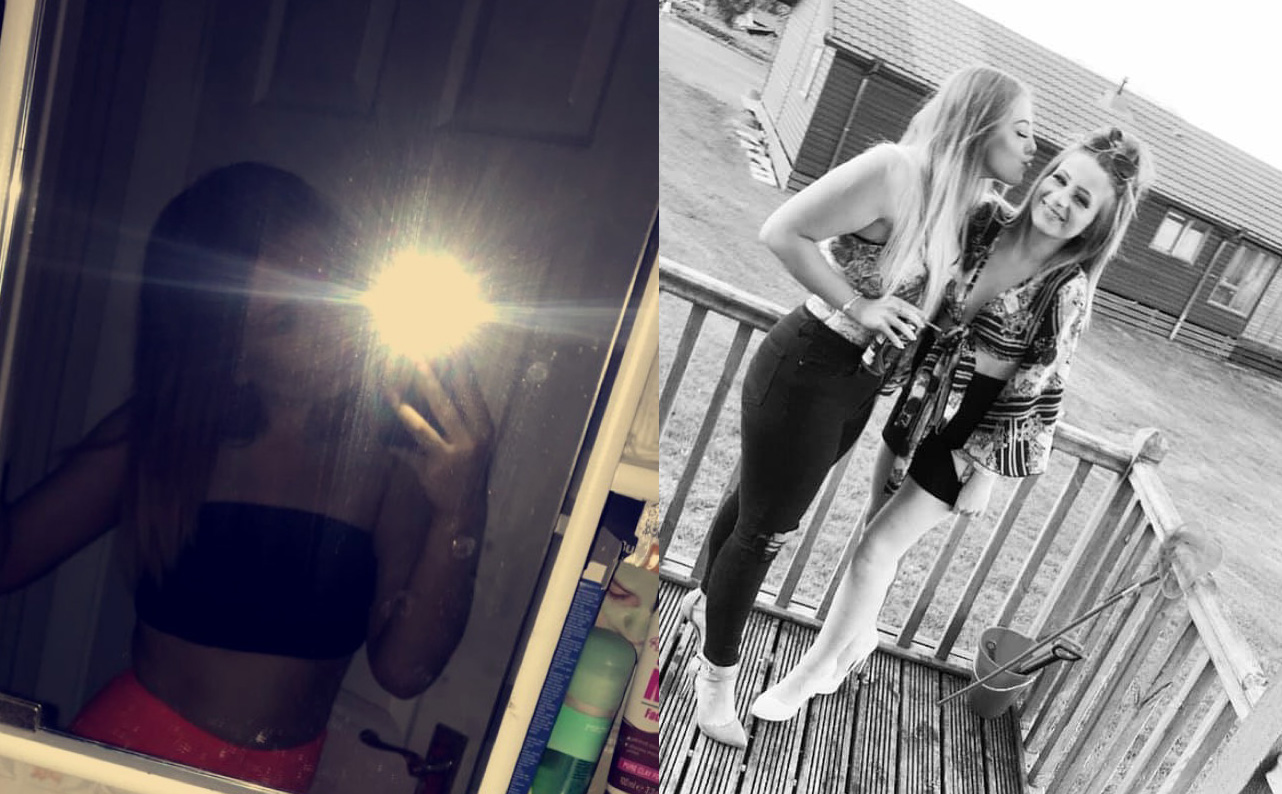
She had a cryptic pregnancy—one that goes undetected by home pregnancy tests, produces no bump, and comes with minimal symptoms (and those symptoms can easily be mistaken for other conditions anyway). Recent figures say these happen in approximately one in 475 pregnancies. Some women with cryptic pregnancies find out seven or eight months in, but there are many women who, like Beth, find out that they’re pregnant literally as they start giving birth.
There are multiple reasons for the occurrence of a cryptic pregnancy, which include: Having two wombs so the baby forms in the one closest to the spine and no bump is formed, having a tilted cervix, or producing low levels of hCG (the hormone produced by pregnant women and picked up by home pregnancy tests). These problems can fly under the radar because there's no way someone would know how many wombs they have. Most people do not undergo routine ultrasounds, and you’d only check your hCG levels once you knew you were pregnant.
Every so often, a new cryptic pregnancy story appears in the media. See “Oldham teenager in coma wakes up with 'surprise' baby” or “Woman, 22, who only realized she was pregnant when she gave BIRTH.” These stories are shocking and, in the latter case, greeted with judgment, and they do little to explain the experience of a cryptic pregnancy and what happens to these women afterward. So I traced the stories of three mothers—Beth, Klara, and Lily—to find out what happens when you give birth unexpectedly. How do you come to terms with 'surprise' motherhood? How do you deal with the judgement that comes from it?
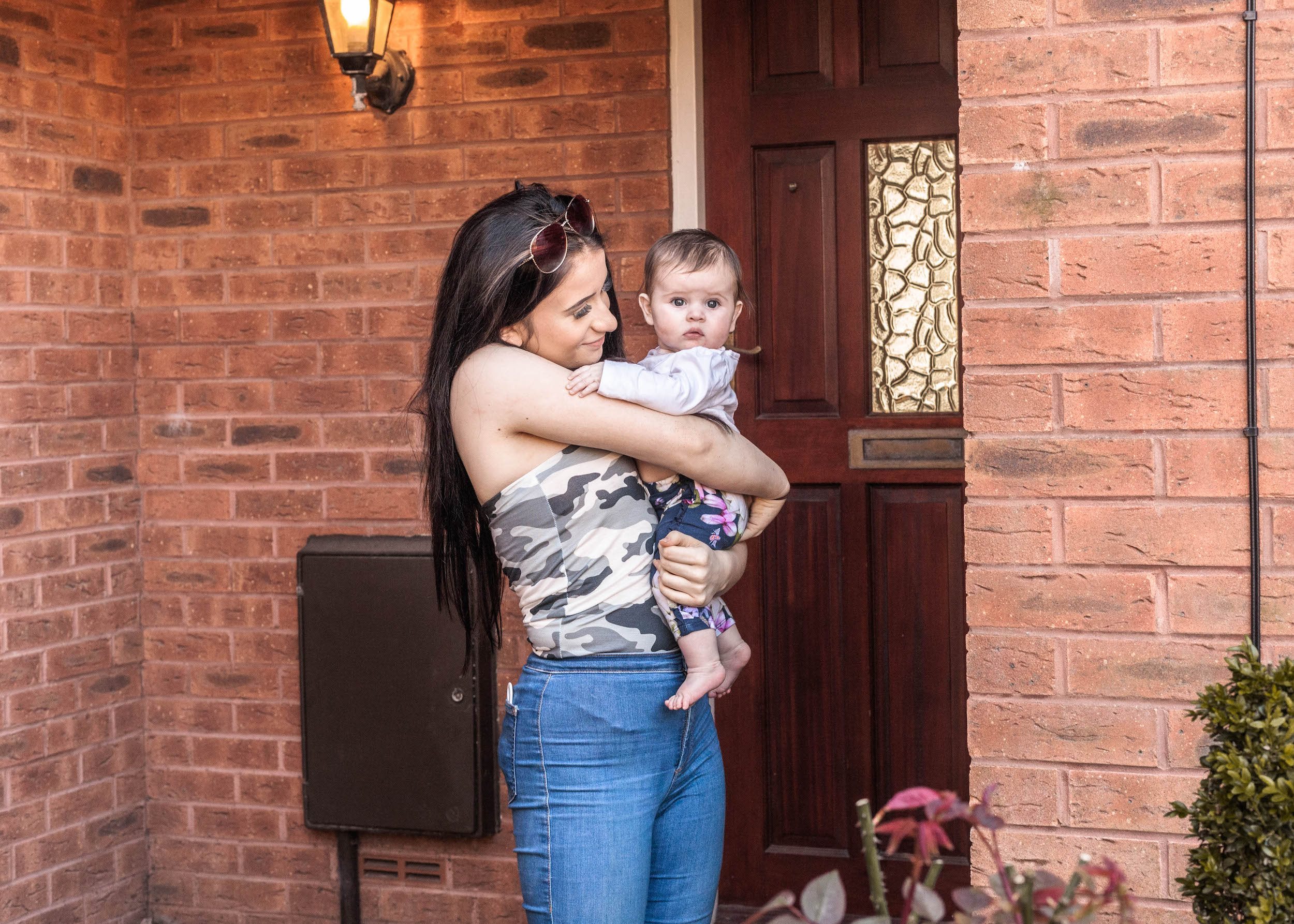
“We went to the hospital because I had started bleeding and [the nurse] was like, ‘Well I think you’re pregnant and about to have a baby,’” says Beth, while bouncing a now six-month-old Maizie on her knee. “So I was given a huge tank of gas and air and rushed to delivery. Turns out I was 9cm dilated and you have to be 10cm to start pushing. So around two hours later, she was out.” Did she feel scared? “I wasn’t really thinking of much at the time,” she says. “I was more bothered about getting out of pain, to be fair.”
For Klara, who had a cryptic pregnancy in 2016 when she was 22, the fear that enveloped her was that she was having a miscarriage. “In my head, I’m thinking, maybe this is a miscarriage?” she says. “But if it was a miscarriage then I’d be nine months pregnant by now because that’s the last time I had slept with someone.” She remembers how her neighbor came to help her when she heard her screaming—“I told her I was having a miscarriage, and I needed an ambulance to come.”
Klara had woken up on the morning of her first day at a new job with “terrible period-like cramps,” and her mom encouraged her to take painkillers and continue her day as usual. The pain became too intense and she left work early, arriving home just hours before she gave birth to her daughter, Amelia—now three years old—while on the toilet. “I was sitting on it and my body just lifted itself,” Klara tells me, getting off the sofa and squatting to demonstrate. “My cervix tilted forward and I caught Amelia, just before she fell into the toilet,” she says holding her hands between her legs.
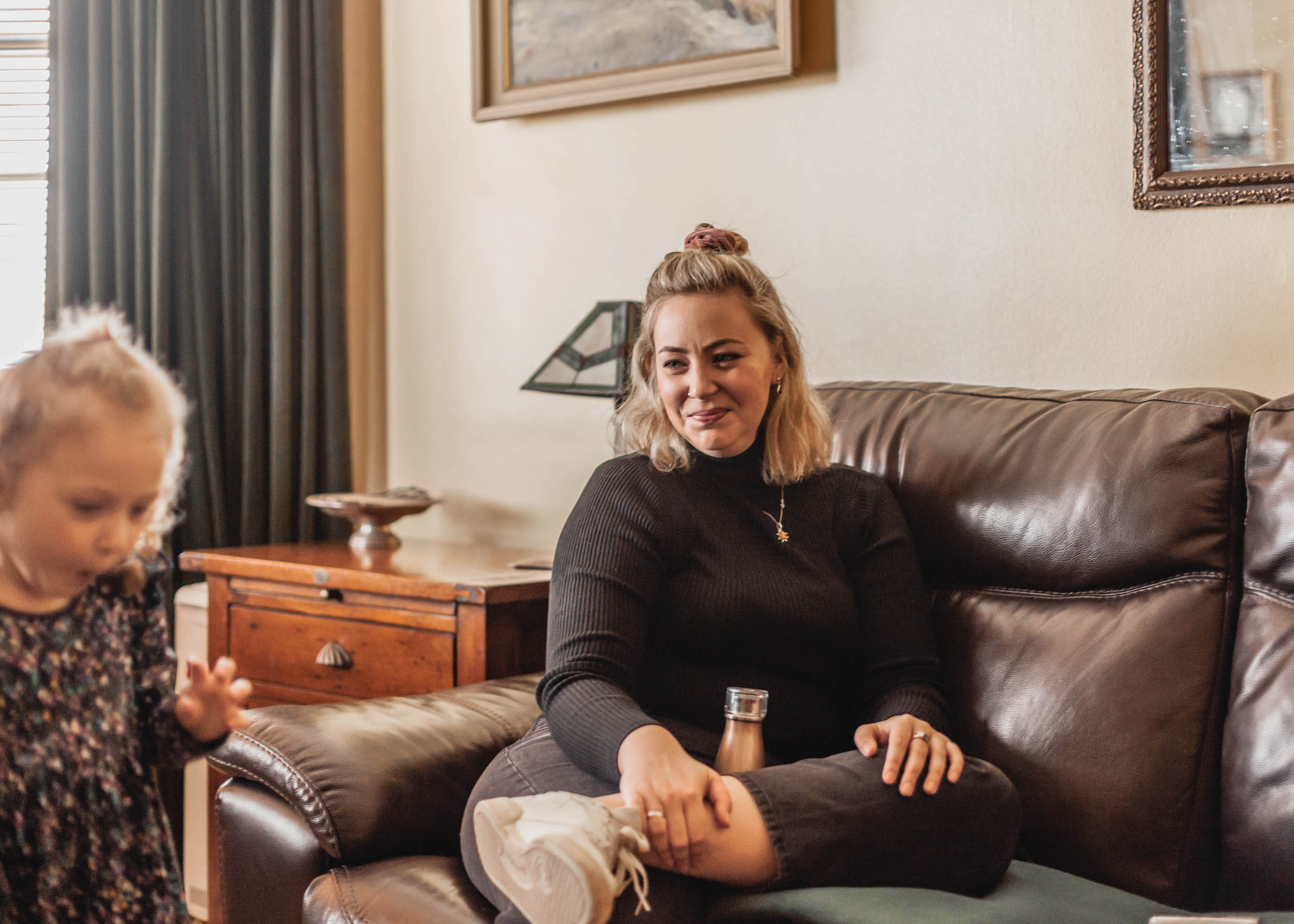
“I had four paramedics peering into my tiny bathroom,” she continues. “Luckily, one of them was a lovely motherly-type and she just held me while I cried and cried and cried. It’s all such a huge blur. I don’t know if I’ve repressed it, it’s just such a stressful point, realizing that everything is about to change. All I was thinking was, I need someone to help me clean the toilet because what if my mom comes home and finds this bloodbath in the bathroom? So one of the paramedics cleaned up a little.”
Often when these stories arise, most people ask how it’s possible to not realize. “I walk around the house naked sometimes and there was nothing for mom to say I was pregnant, so she was the most shocked," says Beth. Klara’s body didn’t change much throughout her pregnancy either. “I was a stone [14 lbs] slimmer than I am now,” she says. And periods were no indicator for her, as she'd been on the combination Pill for around six months. “I hadn’t had a period for about five of those months. I did have slight spotting, but it wasn’t like a full-blown period, so in my head I was like, This is a period, so it’s fine.”
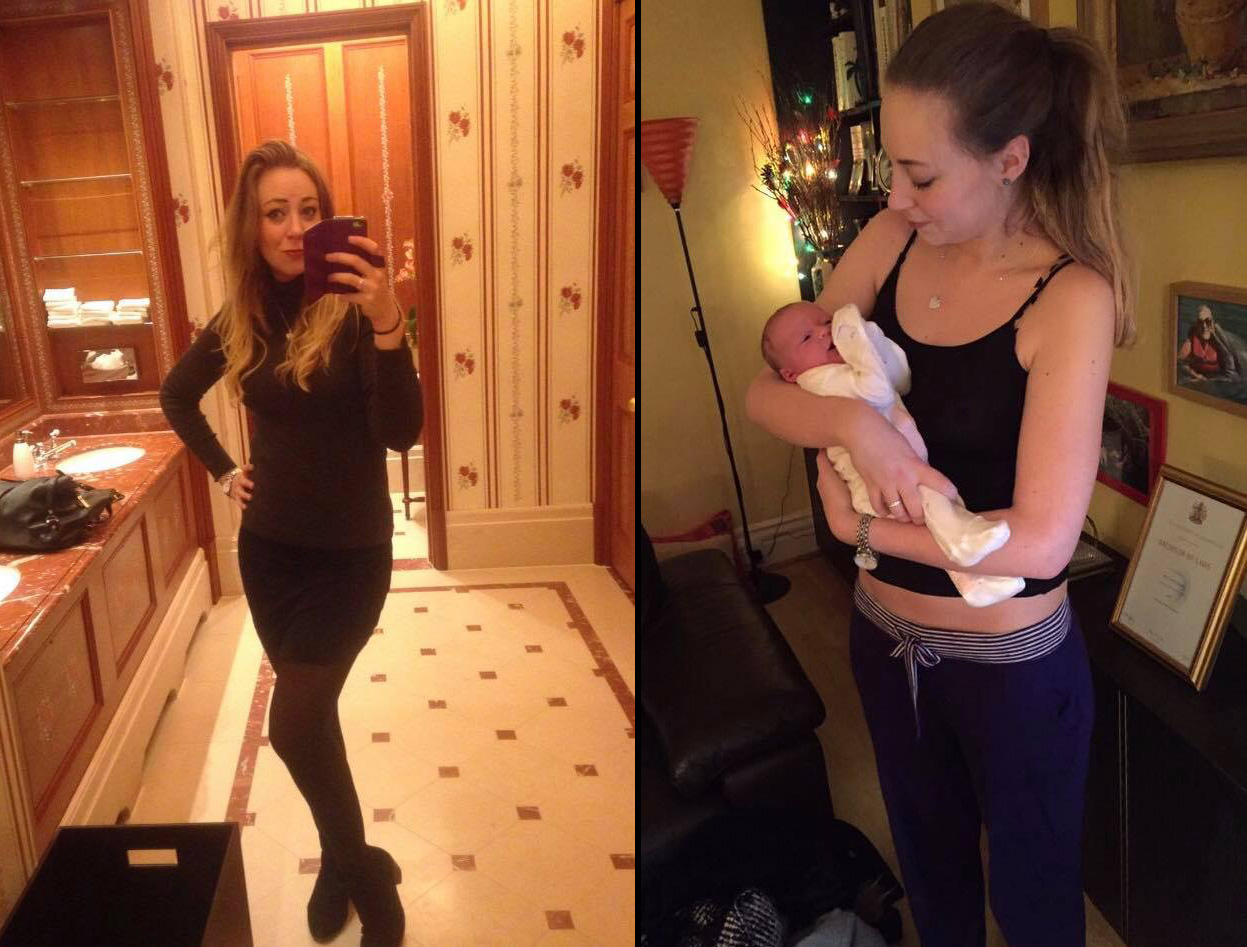
Lily was also on the pill when she experienced a cryptic pregnancy at 18. She found out two months before she was due to give birth to her now one-year-old son Archie. She was living with her boyfriend of one year and his family, working 50-hour weeks as a restaurant manager, and waitress. “People were saying that I had filled out and I was glowing,” she says, “but I had been eating a lot more and had filled out everywhere. It wasn’t a bump or anything like that. I took two pregnancy tests, and they both came back negative, so obviously I thought, I’m just putting on weight, not pregnant.”
But a few months later, Lily started to feel kicks, so she took a third pregnancy test. “It came back positive, and I was rushed to the hospital for an emergency ultrasound, where they confirmed I was 30 weeks pregnant.”
Aside from the experience of giving birth with little or no prior warning, having a cryptic pregnancy means no access to prenatal care; it’s a world without check-ups or prenatal classes. Luckily, all three children in these cases were born completely healthy with no complications, but Beth, Klara, and Lily all shared the fear that not knowing they were pregnant could have put their children’s lives at risk. “I was drinking, I was a Sunday smoker, and I was a bar manager for Christ’s sake,” Klara says. “I was doing 12-hour days and moving kegs around, at eight months pregnant.” Lily had frequent nightmares about Archie’s health before he was born. “If he was born with disabilities, it would be entirely my fault,” she says. “Obviously, I stopped drinking and taking drugs as soon as I found out.”
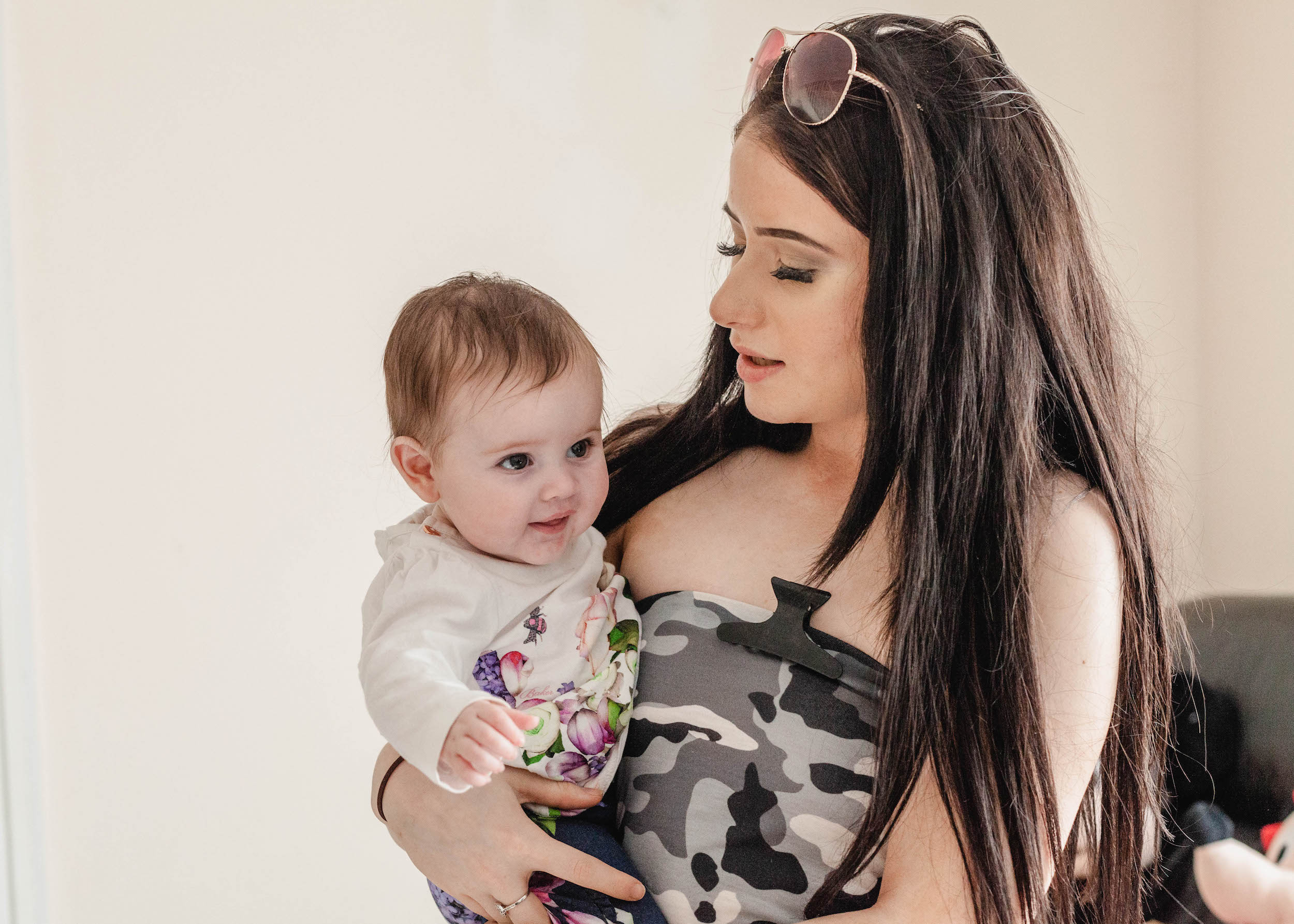
Anyone who’s ever had a never-ending migraine, or a cough that lasts weeks has likely opted to avoid going to the doctor. Not only would you have to miss work, it would probably take three weeks to get an appointment anyway, and it’s going to be gone by then—so you just don’t go. Klara says she should have visited her GP, but was too scared. “Literally two weeks before, the top half of my stomach was very hard and I didn’t know what it was,” she says. “I should have gone to the doctor’s to see what was wrong but that was me being young and silly and burying my head.”
Lily also didn’t seek medical advice when she experienced abdominal cramps. “I remember saying to my friend, 'I feel like this,'” Lily says, “and my friend was like ‘me too’ and because we were on the same Pill, I thought it was something normal.” Add to this the fact that doctors often downplay women’s health concerns, with studies finding that women’s pain is taken less seriously than men's, it's easy to see how symptoms can be left unchecked.
On top of that, cryptic pregnancy claims are often doubted, and Beth believes that her age was the main reason social workers at the hospital were skeptical of her. They decided that it was a ‘concealed pregnancy’—where women don’t tell anyone they’re pregnant and therefore fail to access any prenatal care. So they kept her in for five days while they assessed her and her home. “The social worker said to me, ‘If only you were to have her a week later, you’d be out right away.’ That hurt me because she said it in a malicious way, like it was good timing that they caught me.” When people from college found out about Beth having a baby, the rumors started. “They say that she’s not mine, that I adopted her, or that she’s my dad’s baby,” Beth says. “Some said that I knew, but I’m not a nasty person—I wouldn’t put a baby in danger.”
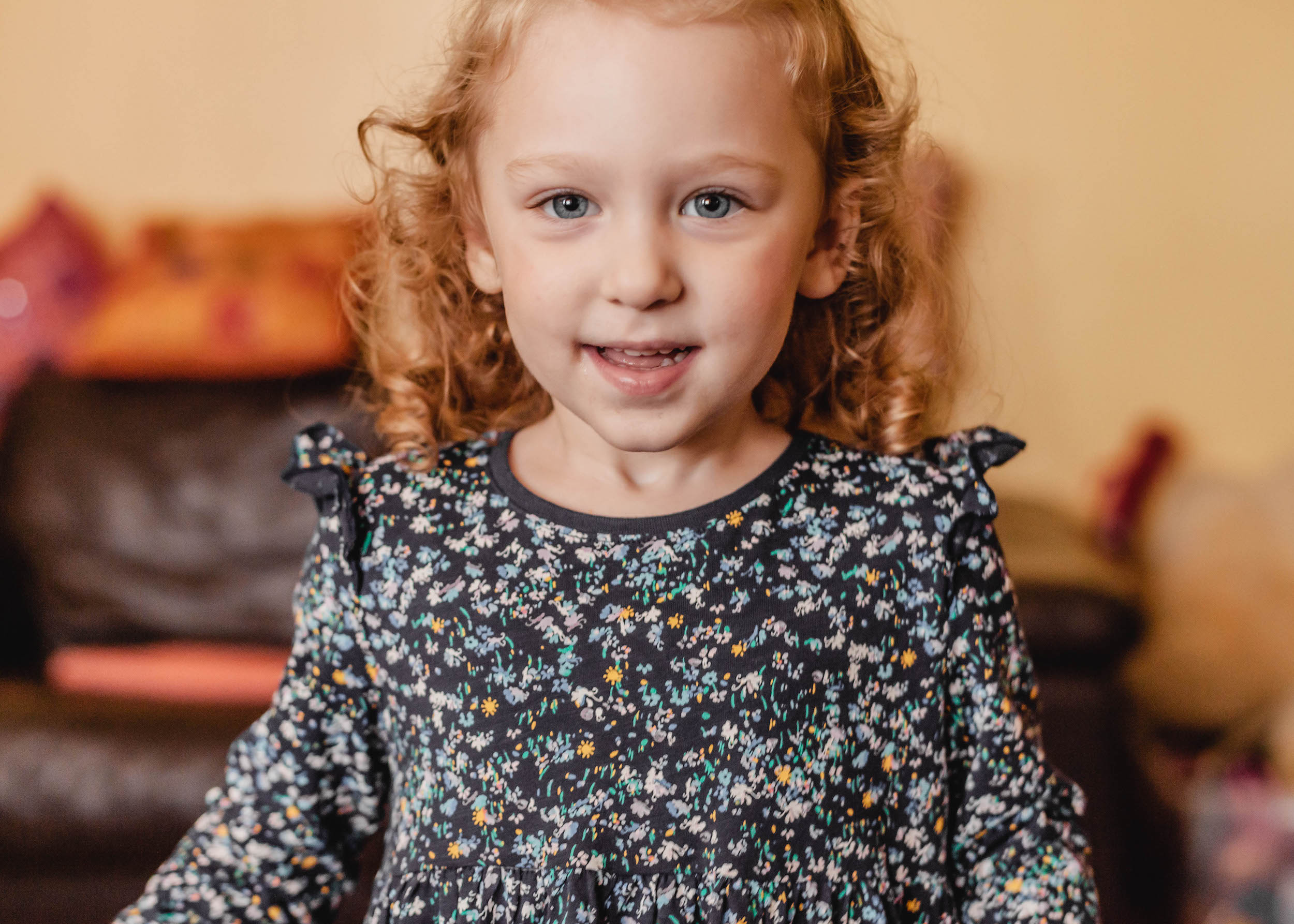
When Klara’s story first broke in the Daily Mail, she received a range of hateful comments branding her as stupid for not realizing she was pregnant. “I was really not experienced at all,” she says, “so I just said whatever and didn’t think of the consequences or how the writer would put it. I got a huge amount of backlash.” Beth first heard about them from a soap. “It was Eastenders, and Sonia—which also happens to be my middle name—has one. It’s weird because [the episode] came out the year I was born.” Only later did she discover that her best friend’s mom had also experienced a cryptic pregnancy.
All three women are surprised at how well they’ve taken to parenting, shushing cries, mopping up dribbling mouths, and tending to bumps while I interviewed them, despite never wanting to have children and using birth control to actively stop that from happening. They all say that things definitely would have been different if they'd had a detectable pregnancy. “I would have had an abortion to be fair,” Beth says. “But I couldn’t imagine that at all now.”
Their doctors have told them that it’s unlikely to happen to someone more than once, but there is still some fear around having sex again. “I’m very paranoid about having sex. Not that I wouldn’t do it again, I’d just think very long before doing it,” Beth says. Lily agrees. “I feel like, you can do everything you can to stop it and it will still happen. It’s changed my outlook on sex. I think I had PTSD from the whole experience.”
Beth is raising her daughter as a single parent, as Maizie’s father has decided not to be a part of her life, but her friends and family, especially her dad, have been all the support she needs. “It’s just happiness all around.” Beth says while smiling down at Maizie, gently rubbing her chin: “Everyone loves you, don’t they?”
Although she has since had to grapple with anxiety and postpartum depression, Lily is still looking forward to the future—“I’m happy with just Archie right now, but I would like to have more kids,” she says. Klara believes motherhood came at the perfect time for her. “Before Amelia was born, I was kind of just floating through life and didn’t quite have a purpose. I was wondering, What am I going to do with my life? I had a law degree and I wasn’t doing anything with it. But now, I’ve found my calling.”
Beth too credits the birth of Maizie with helping her to move forward. “A lot of people have asked me if I'm sad because I can’t live my life?” she says. “But I can.” She’s going back to college in September, and plans to go next year to study Sports and Public Services before joining the Border Force. “If anything she’s made everyone’s lives better,” Beth says.
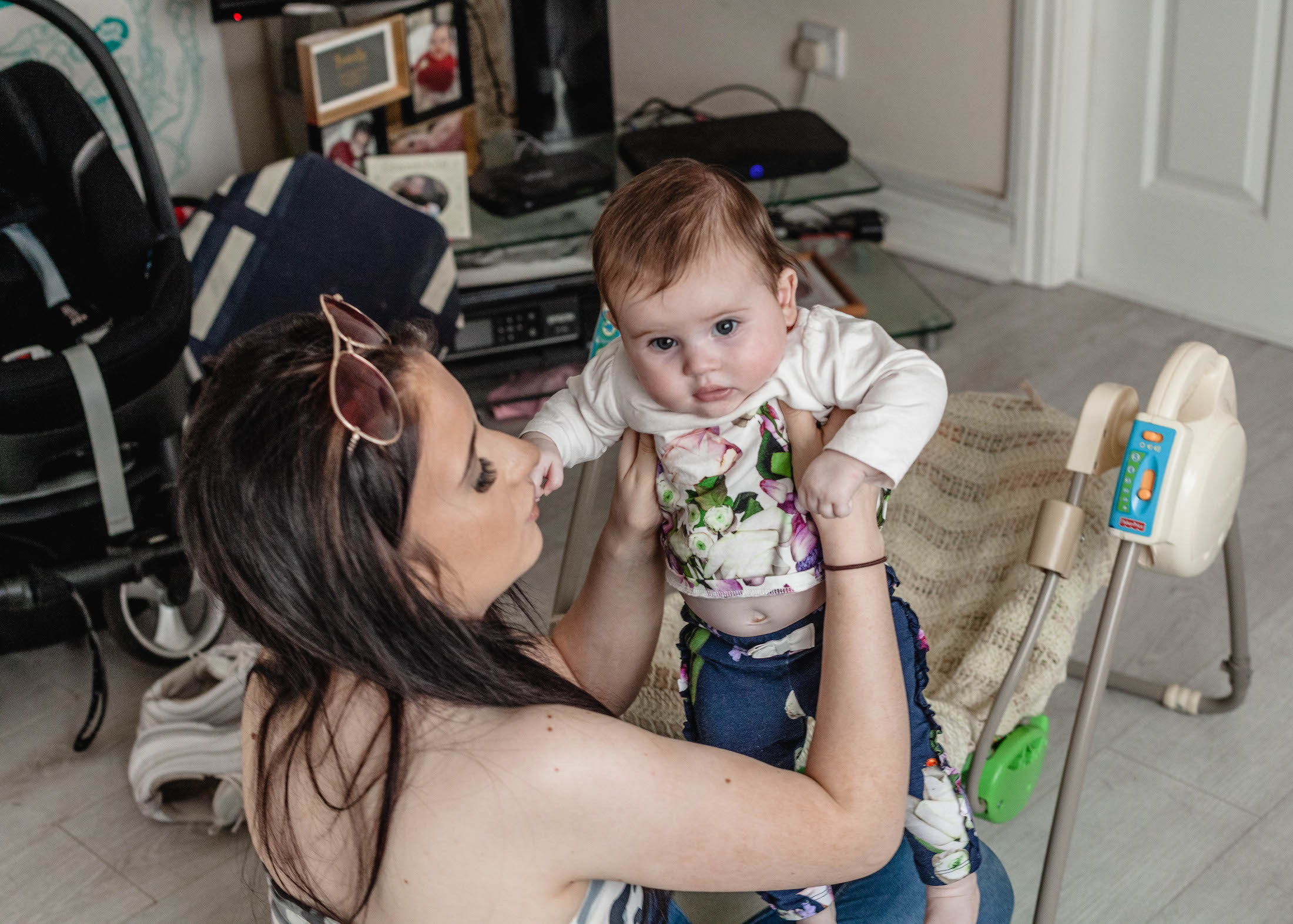
Sign up for our newsletter to get the best of VICE delivered to your inbox daily.
Follow Nana Baah on Twitter.
This article originally appeared on VICE UK.
from VICE http://bit.ly/2WZIDRS
via cheap web hosting
No comments:
Post a Comment